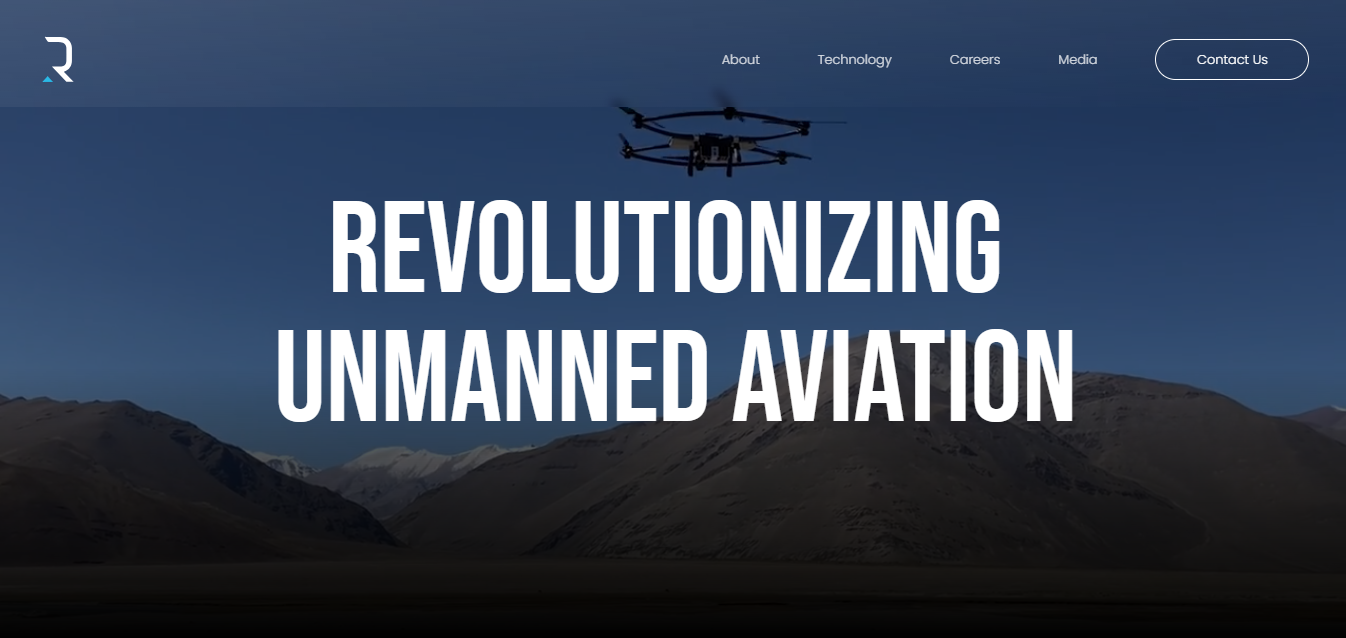Raphe mPhibr Raises $100M to Scale India’s Autonomous Drone Infrastructure
July 3, 2025
byFenoms Startup Research

Raphe mPhibr, an emerging aerospace and drone technology startup, has raised a massive $100 million to build out India’s next-generation drone infrastructure for defense, logistics, and industrial applications. Founded by Vikash Mishra, Vivek Mishra, and Nitin Katiyar, the startup is positioning itself as a homegrown leader in high-performance unmanned aerial systems (UAS).
The funding round, backed by General Catalyst, Think Investments, Amal Parikh, and others, marks a pivotal moment not only for Raphe mPhibr, but also for India’s rapidly growing role in global aerospace innovation.
Building Smart, Strategic Skies
Raphe mPhibr specializes in end-to-end drone systems, including autonomous aerial vehicles, onboard AI, power-efficient propulsion, and mission-critical software. Their drones are used across defense surveillance, border management, last-mile delivery, agriculture, disaster response, and infrastructure monitoring.
Unlike many drone startups that focus on single-use consumer or commercial hardware, Raphe is building vertically integrated, mission-grade drone stacks - complete with thermal vision, autonomous navigation, and modular payloads that can adapt to different terrains and use cases.
Their flagship drones are already being piloted for defense surveillance in India’s border states, as well as for search-and-rescue ops in remote mountainous zones, where traditional logistics simply can’t reach.
A $100M Bet on India’s Drone Frontier
With this $100M raise, Raphe mPhibr plans to scale its production lines, strengthen R&D in onboard autonomy, and establish new facilities for AI-driven simulation and flight testing. The funding will also go toward building a wider network of integration partners across logistics, agri-tech, and infrastructure players.
And this isn’t just a funding milestone - it’s a national inflection point. India is expected to become a $23 billion drone economy by 2030, according to the Ministry of Civil Aviation. From military procurement to commercial drone-as-a-service platforms, the country is rapidly deregulating air corridors, expanding incentive programs, and creating demand for indigenous hardware players.
Where Founders Should Really Be Looking
Most drone startups chase the hardware game - build sleeker frames, better battery density, cheaper parts. But Raphe’s strength is in designing for sovereign systems. They’re not just building drones - they’re building command stack integration, custom AI, and interoperable ground stations that plug into government, defense, and industrial ecosystems.
And this is the quiet ultra value insight most founders miss:
In hardware-heavy sectors, defensibility doesn’t come from the drone - it comes from the decisions made after it lands. Raphe is not just flying payloads - they’re building the end-to-end trust chain for what that data triggers. And in sovereign tech, whoever controls the post-flight pipeline controls the long game.
In other words: the drone is the demo. The real product is the system it’s designed to power. This is the kind of embedded strategic thinking that moves startups from pilots to procurement.
Market Timing: Perfectly Aligned
India has launched several initiatives to support domestic drone development, including the PLI (Production-Linked Incentive) scheme for drones, airspace liberalization, and military-grade procurement opportunities for made-in-India systems. Just last year, the Indian Army issued a tender for over 1,000 tactical UAVs, and the Ministry of Civil Aviation is pushing for 100% indigenization in drone components by 2025.
Globally, the drone market is expected to reach $91 billion by 2030, growing at over 25% CAGR. But what sets Raphe apart is its ground-up approach to autonomy - focusing not just on flight but on edge processing, data transmission security, swarm control, and fail-safe logic under extreme conditions.
This is especially relevant as governments and large enterprises shift toward BVLOS (Beyond Visual Line of Sight) operations and drone swarms for complex missions.
Meet the Founders Powering the Mission
Co-founders Vikash Mishra, Vivek Mishra, and Nitin Katiyar bring together aerospace engineering, embedded systems, and defense-grade industrial design. Their shared vision is rooted in national capability building - creating drone platforms that don’t rely on imported software, black-box hardware, or geopolitical dependencies.
The team’s ability to move fast on both tech and policy fronts has earned them strategic pilots with defense agencies, smart city planners, and disaster response units across India.
What’s Next for Raphe mPhibr?
With $100 million in fresh capital, Raphe is preparing to:
- Launch its next-gen autonomous drone fleet with swarming capabilities
- Expand manufacturing to meet rising demand from both civil and defense sectors
- Integrate AI-based object recognition and adaptive navigation for urban and hostile environments
- Partner with logistics and agri-infra firms to deploy drone corridors for real-time delivery and inspection
Long term, Raphe aims to become India’s first vertically integrated drone OEM - owning the full stack from airframe to software to cloud - and exporting these capabilities to allied nations and global climate zones with complex terrain.









